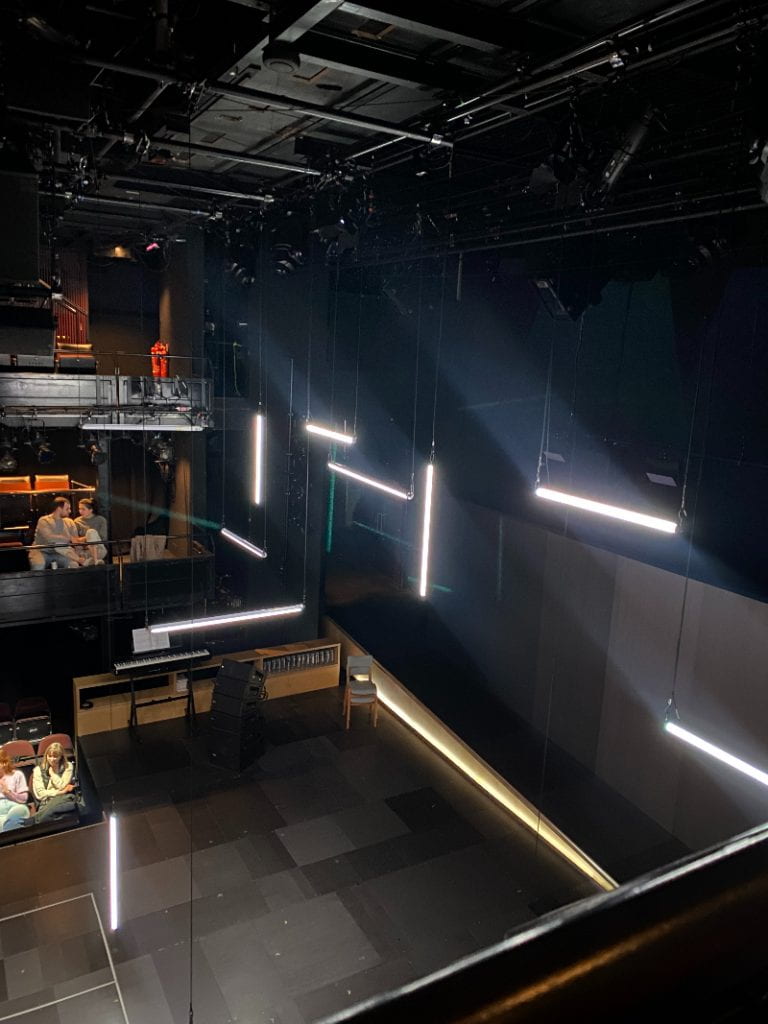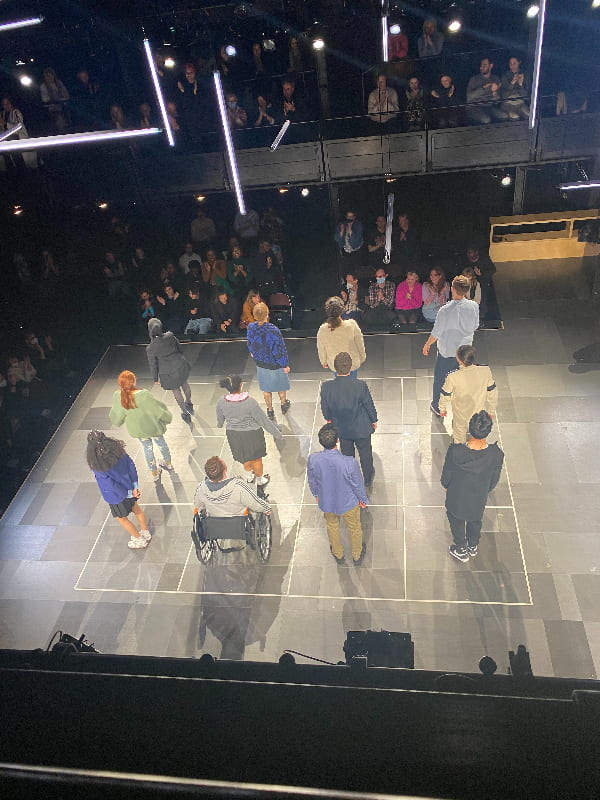A, B, C, and Generation Z: Our Generation Theater Review
Emily Cabreja
The National Theater houses one of the most unique plays that I have ever watched, called Our Generation.
The play, written by Alecky Blythe and directed by Daniel Evans, takes five years’ worth of interviews with 12 teens across the United Kingdom whose ages range from 12-to 16 years old. Happily, none of the teens are the same— all vary in race, dreams, and background. Everyone in the audience could find someone on stage to empathize with, root for, and scold like they were your close friends or students.

Regardless of being an American watching the lives of British teens, I still found myself relating to their struggles, specifically with their GCSE test anxiety, choosing schools, and fears about the future. Eye-catching flashing colorful lights and fun dance choreography to go with pop music was another element that was a pleasantly surprising addition to the play. Overall, when I looked around the audience, I could tell people were engaged, carefully listening to each teen’s story. Smiling at them with fondness, laughing at their bluntness, and saddening during their moments of despair. Watching the teens’ coming-of-age stories leads to the audience developing an attachment to them as though, over time, they had become our friends or even a reflection of our past self we wished we could’ve protected.
However, when I think back about my favorite part of Our Generation, I still find myself fascinated with the ability of the writer and director to stitch together five years into four hours. Although it was a bit hard to get into the rhythm of the play because it contains several characters with different storylines which often did not cross. Over time, as I got further invested in the performance I began to easily follow and soon after enjoyed the performance fully.
The performance puts together the “major events” of being a teen to connect these students’ lives together: first crushes and first romantic relationship, phone obsession, and most uniquely for my generation, COVID-19.
It was the first time I saw my own personal struggle being performed on stage, and it is possible that if the interviews were conducted any time before this would not be the case. The performance took a sharp turn from being hopeful to falling into depression or struggle. Creatively, projectors were used to imitate the character’s videos calling the audience during the pandemic, and masks were put on by the characters. Dread. Depression. Desperation. For many, that is what the pandemic represents, especially during the first wave in 2020, and Our Generation perfectly captures the truth of growing up in a pandemic.
Although the performance was long, it was undeniably entertaining and relatable. Every action and dialogue is raw and unfiltered, executed perfectly by the teens and three adult cast members. Again, while the play can be difficult to follow in the beginning, over time one begins to adapt to the fast-paced changes. However, I would advise doing a little bit of research about how Our Generation was created to fully immerse yourself and avoid getting mental whiplash. Personally, I was only able to get into the performance after taking the time to read a pamphlet explaining the background information during our first intermission.
All in all, I recommend Our Generation to everyone, I believe it gives an accurate picture of what it means to be Generation Z, but also the beauty and struggles of growing up, especially during a pandemic. There is a voice for every story—some you may be able to relate to and others not so much— however, that is the amazing part about being a part of our generation.






